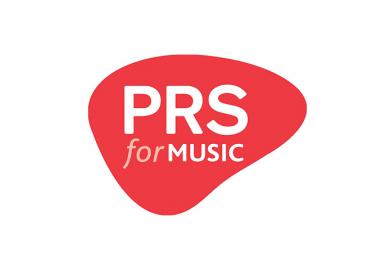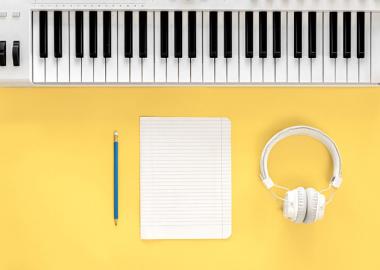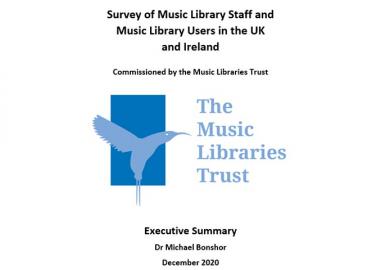The role of the librarian is important for the smooth running of your group and doing it well can make a big difference. You need systems to keep track of all the music whilst being flexible enough to cope with unexpected schedule changes, and the more disorganised members of your group who may forget or lose their music.
The main responsibilities and challenges are:
- obtain a big enough supply of appropriate copies in time for the first rehearsal – this will involve borrowing, hiring or purchasing copies
- issuing music to members and making sure that everyone in your group has the right music at the right time
- having a good system to keep track of who has what music so you know where each copy is
- collecting all music in when it is no longer needed and returning it to its original source
- for choir librarians: you may need to get involved with hiring orchestral material
In this resource, we’ll look at the practicalities of planning music hire on a budget, issuing music to members and collecting it all in again at the end. For more information about sourcing and obtaining music, please see our separate resource: how and where to find music.
Planning for the costs of music hire
It’s likely that you’ll have been given a specific budget for music hire that you need to work to, however music costs can be difficult to predict. Almost all music publishers and music libraries will be happy to provide a quote well in advance of when the music is required, so it is worth taking the time to get these quotes at the time the budget is being set. If your group is happy with the quotes you have provided, you will usually be able to accept the quote immediately, even if you don’t need the music for several months.
There are two possible approaches to covering the costs of music hire:
- The cost of music hire is included in the membership fee paid by members
- Members are asked to pay an additional fee to cover the cost of music hire - this might be a non-refundable charge for the full cost of the music, or a deposit which is returned when the music has been handed back in and held in case of loss or damage.
Both are perfectly acceptable approaches to ensure hire costs are covered and the group breaks even. But if you are charging an additional fee:
- you should be wary of making a profit on music you have hired from a publisher or music library
- ensure your approach is an inclusive as possible, so that anyone who might struggle to meet the cost of this is still able to participate in the activity
Obtaining the music
Actually getting hold of the music is arguably the biggest part of any librarian's role. For more guidance on sourcing music, please see our separate resources:
Cataloguing the music
If you have hired or borrowed your music, then once it comes into your possession, make sure you know exactly how many copies you have from each source. Most lenders will have some kind of numbering system which you can use to identify each individual part. Use this wherever possible; it will save a lot of time later when you are trying to account for any missing copies. There are occasions when a set may not be individually numbered by the owner, and you will need to mark it yourself. Make a pencil mark at the top of the music or inside the front cover, and make sure it is rubbed out before return. Do not use biro, sticky labels or anything that will make a permanent mark on music that you will later need to return.
Once you have a unique number on each part, you can use them to create a master list of which parts have been issued to which member.
Issuing the music
When you issue the copies to your members, you can use the numbering system to keep track of who has which part. On your list, record the name of the person against the number of the copy they have been issued.
When two or more pieces are involved it is may be worth spending time beforehand making up individual ‘sets’ or ‘pads’, each containing one copy or part of each piece. On your master list, you can note in advance which copy number is in which set, and which member that set will be issued to. The sets can then be given directly to the correct individual at the first rehearsal.
Handing out new music takes time, and whilst ideally you would be able to complete this task before the rehearsal starts, many people will turn up to rehearsal with only a few minutes to spare. So the librarian needs to work out, in advance, a way of issuing music in the fastest possible turn-round time, and it is worth building in time at the first rehearsal for this to happen.
If possible obtain a list of all choir members with their phone numbers or email addresses, in case, after the concert, you have to chase those who have not returned their music. And keep an eye out for any new faces and make sure you get a phone number from them when you issue the music. This makes it easier to retrieve music from someone who came to one rehearsal never to be seen again!
During the rehearsals
After the first couple of weeks of term, the librarian does not have much to do except to have spare copies available for people who forget to bring their music or for any new members who join later in the term. As the concert approaches people may begin to drop out. It is wise to keep in touch with the person in your group who is co-ordinating performer availability, and work with them try to get the music back before the event takes place.
On the day of the performance
This is the day when extra copies might be needed for last minute draftees. An emergency supply is also useful if someone’s music gets left behind at home.
Clear instructions should be given to members on how to return their music after a performance. It is best to collect it straight away with boxes strategically placed, and ask some people with loud voices to be ‘backstage’ reminding people to hand over their music.
Effort in getting all the hired and borrowed music back immediately after the concert will be repaid by the less time you will have to spend chasing up afterwards.
Returning the music
Most lenders/hirers understand that it takes a certain amount of time after a performance to collect all the music back in again, and are flexible with their customers. However, you should always ensure that the hire period you have requested allows time for this, and if you are still going to be late returning the music, keep in touch with the supplier to let them know what is happening.
The music must be returned in reasonable condition, and for most lenders this includes a requirement that markings be removed. A good idea is to have a rubbing out party. You may be charged a fee if the lender feels the music has deteriorated or been defaced whilst in your possession.
Music which has to be posted back remains the borrower's responsibility until it arrives safely with its owner. Make sure that the music is adequately and securely packed so that it does not get damaged in transit, and include a packing slip stating who the music is from, so that they can match it up to your account when they receive it. A separate email telling the recipient that the parcel is on its way is also a sensible precaution.
These days some music publishers include a pre-paid label for you to post the music back to them, but for those that don’t, the cost of postage can seem very high. If you’re able to, try to return music in person to save on postage. Otherwise, we strongly advise sending music by a courier who can track your parcel, and include a suitable level of insurance cover.
Copyright
As librarian you must be prepared to deal with emergencies, lost copies or last minute changes. Copyright is a main pillar of the music publishing industry, and must be respected in these situations. As a general rule, you must not make copies or any other reproductions of the printed music in order to avoid hiring or purchasing sufficient original copies for your group. The Music Publishers’ Association (MPA) has an agreed code of fair practice detailing the instances when copying or reproduction of copyright music is permitted. Copies of the relevant guides are available on the MPA website: Guidelines for amateur music hire and Code of Fair Practice. However, please note that both these documents are currently in need of updating to bring them in line with the latest legislation.
It is wise for a librarian to be aware of the rules:
- Works by a composer are protected by copyright in the UK during the composer’s life and for 70 years thereafter. In the case of multiple composers, copyright exists until 70 years after the last one of them to die. It is an infringement of the copyright in such a work to make unauthorised copies.
- Works by composers who have been dead for 70 years are in the public domain. However, such works may have been arranged, in which case the arranger has a copyright in their version of the work until 70 years after their death.
- The publisher may have a graphic right in the type setting, lasting 25 years from publication.
If you are sure that the printed copy you need to copy is outside these rules, it is not an infringement to make copies.
We hope you find this Making Music resource useful. If you have any comments or suggestions about the guidance please contact us. Whilst every effort is made to ensure that the content of this guidance is accurate and up to date, Making Music do not warrant, nor accept any liability or responsibility for the completeness or accuracy of the content, or for any loss which may arise from reliance on the information contained in it.







